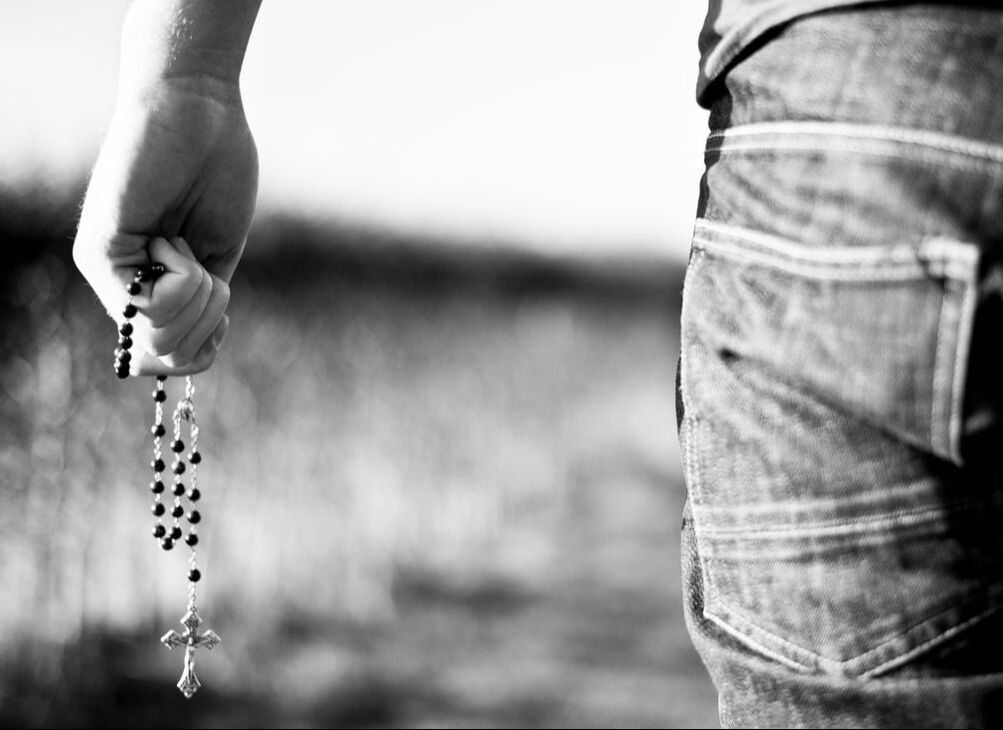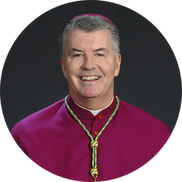|
A few days ago, in a damp and empty St. Peter’s Square, His Holiness Pope Francis stood alone and prayed to God saying, "it is not the time of your judgment, but of our judgment: a time to choose what matters and what passes away, a time to separate what is necessary from what is not. It is a time to get our lives back on track with regard to you, Lord, and to others." Later in that time of prayer, he raised the monstrance with the Blessed Sacrament to bestow an extraordinary blessing, urbi et orbi. This month’s Faithfully theme was to focus on the future and to offer hope in the Easter season by writing about our youth and young people. Despite the fact that at this moment most of our thoughts and energies are consumed by the threat of the COVID-19 coronavirus, it might, in fact, be providential to offer a reflection for the future, one of faith and hope which our youth might come to discover. In 2018 the Synod on Young People, the Faith and Vocational Discernment gathered young people from around the world to discuss the realities they face today in their daily lives and in the living of their faith. Fr. Cristino Bouvette, the Diocesan Vocation Director, gathered a group of young people in the Diocese of Calgary to provide their input to the Synod. And as I read the Post-Synod Apostolic Exhortation, Christus Vivit, (CV) once again, I was struck by the thought that no one could have imagined in 2018 that this generation of young people would soon encounter and live through a worldwide pandemic. There are many teachings from CV that potentially can strengthen the resiliency of young people as they meet the challenges now and in the future. Here are only four which can sustain their faith and hope in God. First, the experience of a living faith that grows deeper when we endure struggles. When things are going well, it is easy to ride the wave and take for granted the many blessings we have. When these experiences have been removed from our daily lives – consolations such as seeing friends at school; working with a team on a project; playing a sport or watching a musical show – there can either be a sense of emptiness for what we are missing or a deeper appreciation for the gift of God’s providence that we know in faith endures with or without those consolations. As we face days of uncertainty, our faith can sustain us and prevent experiences of anxiety. The words of Pope Francis encouraged the young to: Keep following your hopes and dreams. But be careful about one temptation that can hold us back. It is anxiety. Anxiety can work against us by making us give up whenever we do not see instant results. Our best dreams are only attained through hope, patience and commitment, and not in haste. (CV, 142) Second, the importance of family and those considered to be family. Many young people have had their studies severely impacted following the sudden closure of schools, colleges and universities. Other young people have been laid off from work. They are returning home to their families – some even travelling home from working or being abroad. Families that have not necessarily had the chance to spend much time together are discovering board games, watching movies together, and even trying creative video-taping projects or simply home-cooking. Our families offer young people the wisdom of older generations who have faced the challenges of their times. Pope Francis noted such a gift. When intergenerational relationships exist, a collective memory is present in communities, as each generation takes up the teachings of its predecessors and in turn bequeaths a legacy to its successors. In this way, they provide frames of reference for firmly establishing a new society. (CV, 191) Third, the benefit of connecting and communicating with others – even if it is through virtual contact. The Internet has emerged as the primary means for people to carry on with communication, meetings, access to information while being at home. Pope Francis is no stranger to such modes of communication. The web and social networks have created a new way to communicate and bond. They are “a public square where the young spend much of their time and meet one another easily, even though not all have equal access to it, particularly in some regions of the world. They provide an extraordinary opportunity for dialogue, encounter and exchange between persons, as well as access to information and knowledge… In many countries, the internet and social networks already represent a firmly established forum for reaching and involving young people, not least in pastoral initiatives and activities.” (CV, 87) Finally, the moral demand to look after one another and seek the common good. These are times when each person realizes that to protect one another, we must work together. Listening and following the directives of health officials and government legislators is in fact “caring for our neighbour.” In addition to being socially responsible, we are called to recognize and respond to the needs of the most vulnerable in our midst. Pope Francis presents such a vision to the youth. I ask young people to go beyond their small groups and to build “social friendship, where everyone works for the common good. … It is not easy, it always means having to give something up and to negotiate, but if we do it for the sake of helping others, we can have the magnificent experience of setting our differences aside and working together for something greater… This is something which young people can dare to pursue with passion. (CV, 169) Wherever we are, we always have an opportunity to share the joy of the Gospel. (CV, 177) While the 2018 Synod on Young People may not have foreseen the COVID-19 pandemic, many enduring life lessons are in the document. They are also echoed in the words of the prophet, Isaiah, which affirm the abiding care of God for each one of us, especially our youth - “do not fear, for I am with you, do not be afraid, for I am your God; I will strengthen you, I will help you, I will uphold you with my victorious right hand.” (Is. 41: 10). Be assured - God is with us. God bless you.
2 Comments
Rob Henderson
4/25/2020 09:29:51 am
Please consider allowing parishes to schedule masses for 15 people maximum. They would post or email schedules for members to sign up and schedule many through the week in the parishes where people could maintain social distance to receive communion. I don't have all the logistics figured out but it sound as though Dr. Henshaw has banned gatherings of more than 15 to the end of August.
Reply
Your comment will be posted after it is approved.
Leave a Reply. |
Author
Catholic Pastoral Centre Staff and Guest Writers Archives
July 2024
Categories
All
|


 RSS Feed
RSS Feed